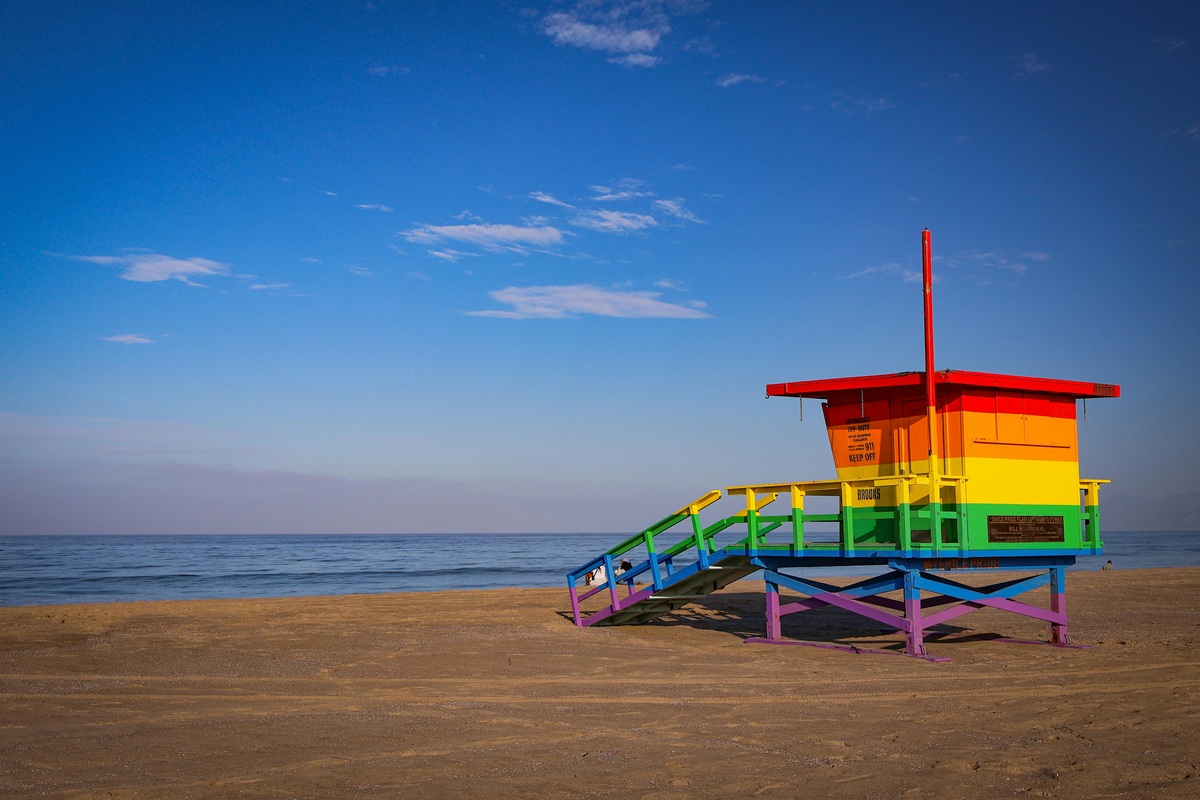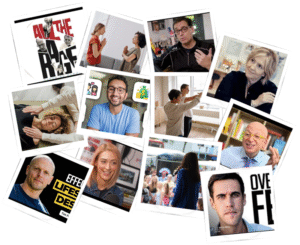
The Upside Of Not Chasing Rainbows

Rachel Oliver
Founder, Curism

The magic of zero expectations and the happiness it can bring.
A big (if not the biggest) killer of creativity – and happiness, in general – is the need to be exceptional.
It’s a key ingredient for creative paralysis. It‘s also rocket fuel for feelings of gross inadequacy.
If we didn’t feel inadequate already, then piling massively pressure-enducing expectations on ourselves about something we haven’t even done/become yet is a guaranteed way to get us in that state.
When we aim disproportionately too high, the ugly sister of inadequacy — the critical inner voice — is then, by default, given free reign.
It relishes this as an opportunity to remind us in a myriad of ways just how unrealistic our ambitions are – and how unlikely it is we will achieve them.
“We’re never going to get there,” it whispers. “So, why bother?”
This is not to say we shouldn’t aim high in life. But there are times when it helps to scale it back a bit.
The Joy Of Zero Expectations
Having zero expectations is a joy in itself — regardless of what comes from the thing we have zero expectations about (which is literally the point).
Creating-without-expectation, in particular, is incredibly healthy and a great happiness booster.
It is creativity for creativity’s sake, giving us that one sacred place, free of obligation, where we can just be.
It has nothing to do with societal trends, what is popular, what we think we should be doing. And because of this, it helps us break out of hive mind thinking.
The Lives Of Others
Often our goals (and ultimately our identities) our influenced largely by people we see in the world who have already “made it”.
We want to be like them. We think they have found the perfect formula, which, if followed to the letter will make us as happy and successful as we think they are.
Before we realise it, we have modelled our ideas and lives on them.
We think — “there’s the formula — they’ve got it right”.
So, we operate on the assumption that if we do what they do, we’ll be like them and we’ll have the kinds of lives they have.
But when we do this, we risk denying ourselves the ability to chart our own paths.
As Joseph Campbell once said:
“If the path before you is clear, you’re probably on someone else’s.”
Paradoxically, embracing a lack of ambition and significantly lowering our expectations are what allows us to find out what our path actually looks like.
Here’s how.
Procrastination
When we drop our high expectations, we can actually get started on something new (rather than just fantasise about it), because it doesn’t really matter. The pressure is off.
As Mel Robbins argues here, excessively ambitious plans can be the very thing that prevents us from actually starting a new project, because of the inordinate pressure it puts on us.
Risk-Taking
When we’re in this state, we are not trying to prove anything to anyone. As a result, we are far more likely to experiment, to play, to take risks. And by doing that we increase the likelihood of stumbling upon something that feels more like us.
Creative Block
Creative blocks can invariably be the “need for immediate perfection” in disguise. When we relax our high standards, allow ourselves to be a bit crap, and stop unfairly comparing ourselves with those we might idolise, we find these blocks start to crumble away.
In fact, we can actually leverage it as a technique when we need to. Tim Ferriss testifies to this approach with his “Two Crappy Pages” tip.
Purpose
Following our natural inclination to do something, regardless of the outcome, can be a gateway to discovering what really matters to us. This is what will bring us greater meaning and a sense of purpose in the long run.
Intrinsic Motivation
By creating something for the simple joy of doing it, we get a taste for what it feels like to be intrinsically motivated.
There are no expectations on us, no-one is asking us (or paying us, even) to do this — we are acting autonomously, which in turns gives us:
Agency
We gain a sense of agency from doing something we are not obligated to do. We gain a feeling of control over part of our lives, that we might not otherwise have in other areas, which is vital to our health and well-being.
Flow/The Zone
Being intrinsically driven and autonomously led are vital ingredients for entering that elusive — and highly sought-after — flow state. Doing what we genuinely like to do — without expectation — is far more likely to get us in the zone than killing ourselves with unreasonable expectations and following cookie-cutter methods to get what we think we should have.
And finally:
Eureka moments
Ideas come when we are not trying — when we have switched off. Dropping the expectations, easing up on ourselves and literally going with the flow is far more likely to lead to those breakthrough moments.
And this, ironically, will likely take us to that magical place we had, at last, stopped chasing after.